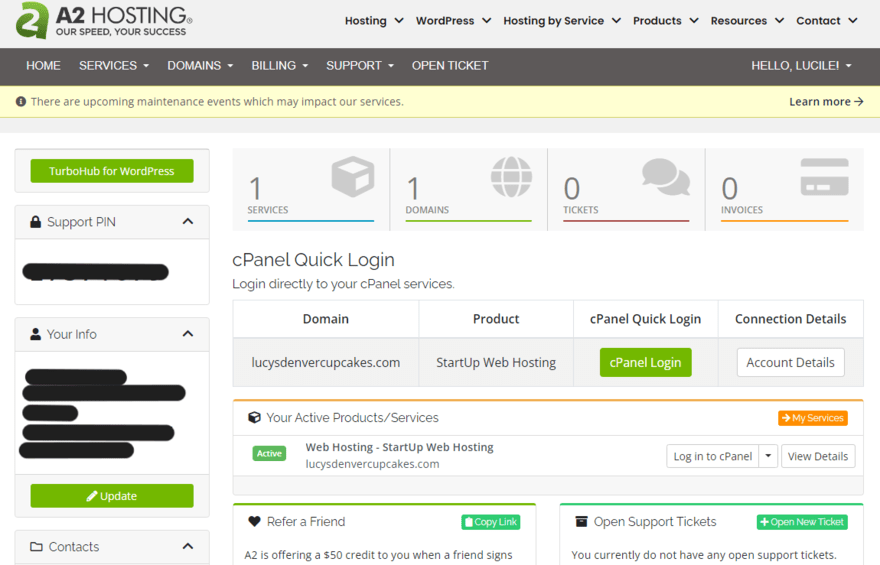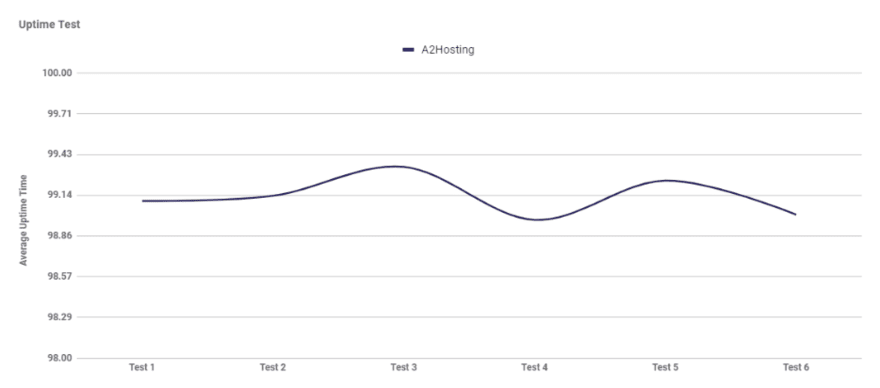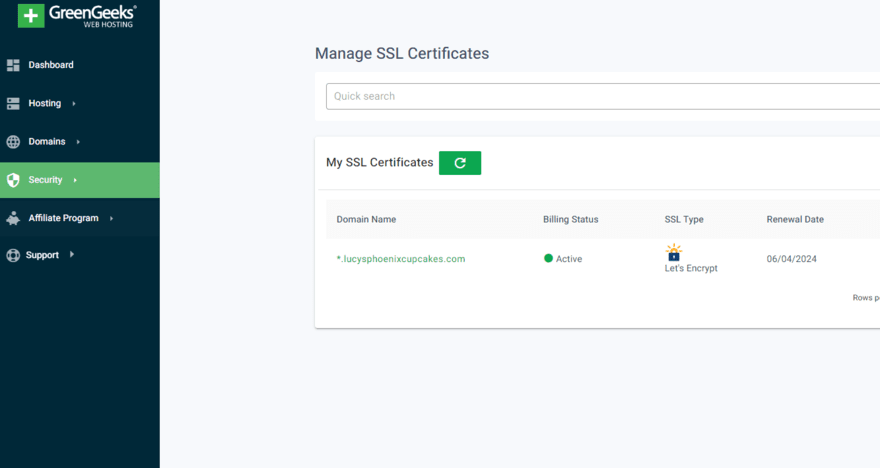5 Best Django Hosting Providers: Compatible Hosts
If you click to purchase a product or service based on our independent recommendations and impartial reviews, we may receive a commission. Learn more
With thousands of websites built on Django, finding the right web hosting for your Python-based web application is right up there in the importance stakes. Choosing the wrong provider can lead to slow load times, scaling issues, or even unexpected downtime. Moreover, the crowded market for Django hosting makes picking the best solution a tricky task.
So, how do you determine which is right for your web app’s specific requirements? Do you prioritize blazing speeds? Simple scaling? Maybe you need robust backups or 24/7 expert support?
Here, we’ve got you covered with the best Django hosting providers and why they’re the compatible hosts you need for your web application.
The 5 Best Django Hosting Providers
- Bluehost – Best for all-around use
- HostGator – Best for technical help and customer support
- InMotion – Best for ease of setup and installation
- A2 Hosting – Best for speed
- GreenGeeks – Best for eco-friendly hosting
What Types of Hosting Are Best for Django?
Django’s versatility means it can be hosted on most major hosting types. However, some environments are better optimized for Django’s resource requirements:
- Shared hosting. Django can work on cheap shared hosting but only for small, low-traffic sites due to limited resources. Scaling at speed becomes difficult.
- VPS hosting. Virtual private servers (VPS) with mid-range resources strike a good balance for many Django sites. They allow more control and customization than shared plans.
- Cloud hosting. Services like AWS, GCP, and Azure allow for easy scaling of Django sites to meet traffic demands. But they require more technical expertise to manage cloud hosting.
- Dedicated hosting. For resource-intensive Django sites, dedicated hosting provides the highest performance, control, and customization without reliance on a shared platform.
When assessing Django hosting providers, look for options specialized for Python and Django that can scale seamlessly as resource needs evolve.
Here’s a more comprehensive look at the best Django hosting providers available, tried and tested.
1) Bluehost
5 out of 5 stars
Overall rating: 4.8/5
Best for VPS Django hosting

Bluehost is one of the most popular shared hosting providers around, and it tops our list for Django hosting. Its low pricing starts at $1.99 per month, and WordPress expertise makes it an attractive option, but how well does it stack up in other areas related to Django?
✔️ What We Liked
- Affordable pricing: Competitive pricing that offers value for money, with a 30-day money-back guarantee.
- Uptime reliability: Boasts an impressive uptime, with reports showing averages over 99.9%.
- User-friendly interface: A clean, minimalist dashboard design that’s easy for beginners.
- Integrated Cloudflare support: Bluehost includes Cloudflare integration, which can significantly enhance the performance and security of Django applications.
❌ What We Didn’t Like
- CPU protection policy: On shared hosting plans, excessive demand on server resources can lead to limited access or slow performance.
- Limited advanced features on VPS: Bluehost’s VPS features are not as comprehensive as dedicated and WordPress hosting offerings.
- Promotional pricing strategy: Initial low pricing increases considerably upon renewal, especially if you’re starting with the $1.99 plan.
Who Should Choose Bluehost?
Recommended for
- Users looking for a cheap entry point for Django hosting
- New website owners
- Sites requiring reliable uptime
Not Recommended for
- Users with high-traffic sites requiring robust performance
- Users who want access to in-depth support on cheaper plans
Plans and Pricing
Bluehost starts at $1.99 per month for its basic shared hosting package. Django is compatible with all shared hosting plans but may face resource constraints on cheaper tiers. For instance, manual setup is required. If you want to get the best out of Django, we recommend Bluehost’s VPS plans (starting from $31.99 per month), because they give you things like root access, which allows for installation and configuration of any necessary software.
Read our full Bluehost Pricing Review for more information on costs.
Performance and Scalability
Bluehost is regarded as a leading choice for VPS Django hosting and uses a simple cPanel interface, which is highly acclaimed for its intuitive design. Its VPS plans contain plenty of components like 2 cores, 30GB SSD storage, 2GB RAM, and 1TB bandwidth, to name a few—excellent for powering more demanding Django and Python-based web applications.

Compatibility and Support
Bluehost offers support, with phone, chat, email, and 24/7 support. While someone is on hand to help, rather annoyingly, cheaper plans lack any real customized Django support and require a bit of know-how to get set up.
Security and Reliability
Again, Bluehost uses cPanel. That means you get security features like spam protection and SSL certificates. Some vulnerabilities still exist on shared infrastructure, however. Backup capabilities and uptime depend on the selected plan, with pricier tiers offering more robust continuity guarantees.
Bluehost is a solid Django hosting option with dedicated power and server resources. Just be prepared to spend a little more on VPS or dedicated hosting plans to get the most out of and scale your Django projects.
More information
- Get the lowdown with our in-depth Bluehost review
2) HostGator
5 out of 5 stars
Overall rating: 4.7/5
Best for technical help and customer support

HostGator is another popular web host known for its VPS hosting that can power your Django applications. Its affordable plans and ease of use should appeal to new Django users, but how do its core hosting features required for Django developers stack up against the competition?
✔️ What We Liked
- Unmetered resources: HostGator offers unmetered disk space and bandwidth across all plans, accommodating various website sizes and traffic volumes.
- Reliable uptime: It maintains a 99.9% uptime guarantee for consistent website availability.
- Free SSL certificate: Each domain and subdomain is secured with a free SSL certificate, enhancing security and SEO.
- User-friendly cPanel: HostGator’s use of cPanel simplifies site and server management, which is beneficial for both beginners and advanced users.
❌ What We Didn’t Like
- Slower response times: Compared to competitors like Bluehost and GreenGeeks, HostGator’s server response times are slower.
- Customer support variability: Although available 24/7, customer support experiences can be inconsistent, with some users facing long wait times.
- Additional charges for website builder: Unlike some other hosts, HostGator charges an extra monthly fee for its website builder.
Who Should Choose HostGator?
Recommended for
- Small to medium-sized businesses
- Strong uptime and reliability
- Users looking for unmetered resources
Not Recommended for
- Websites requiring ultra-fast server response
- Users requiring advanced, consistent support
- Those who prefer a hosting plan with a free website builder included
Plans and Pricing
For HostGator, Django support is primarily available on the VPS and dedicated hosting plans, which are better suited for the more intensive demands of its applications and start at an introductory price of $36.99 per month. It should be noted that while Django can be installed on HostGator, it’s not a supported application, and you’ll likely need a decent grasp of how to get Django running on HostGator.
Read our full HostGator Pricing Review for a more detailed breakdown of its plans.
Performance and Scalability
Known for performance and scalability, HostGator has a range of plans that guarantee 99.9% uptime for consistent availability, and all tiers provide unmetered disk space and bandwidth—beneficial for personal and small business sites. VPS and dedicated options have faster speeds and customization control suitable for substantial storage and performance needs.

Compatibility and Support
Its easy-to-use cPanel interface simplifies website management, while the One-click CMS installs streamline WordPress, Joomla, and Drupal setups. VPS plans provide full root access, enabling increased customization. However, while HostGator supports Django on its VPS, it lacks specialized tools or optimization.
Security and Reliability
HostGator pledges 99.9% uptime, shielding against things like DDoS strikes, and offers a free SSL certificate with all packages to bolster safety. At the same time, the absence of modern security protocols and login protections isn’t ideal. These could negatively impact the total security HostGator provides.
HostGator is a great alternative to Bluehost, and its VPS and dedicated plans mean you can power your Django web applications. If you’re a beginner, however, you might find its lack of Django-specific support challenging.

More information
- Learn more about HostGator with our full HostGator review
- Get help choosing between our top two recommendations in our Bluehost vs HostGator comparison
3) InMotion
4.5 out of 5 stars
Overall rating: 4.5/5
Best for customer support

InMotion is a developer-friendly hosting platform that has been around for a while now, since launching in 2001. It has got a great team behind it that offers plenty of support, but how well does it scale complex workloads? We evaluated InMotion’s core infrastructure and support for key criteria around customization, security, and performance.
✔️ What We Liked
- Unlimited bandwidth and large storage: InMotion offers unlimited bandwidth on shared plans and up to 2TB on VPS plans, which is beneficial for sites with high traffic.
- Technical-oriented hosting: Best suited for those with deeper technical knowledge and serious ambitions to grow.
- U.S.-based support: Offers 24/7 customer support from a team of technical experts, with support teams based in the U.S., minimizing language barriers. If needed, you can get them to install Django for you (for a fee).
- Variety of hosting options: Provides a good range of hosting services, including shared, VPS, dedicated, and reseller hosting.
- Advanced security features: Includes SSL certificates, hack and malware protection, and DDoS protection, ensuring robust security for websites.
❌ What We Didn’t Like
- Aggressive upselling: InMotionhas been noted for its aggressive upselling tactics. Users have reported being offered additional services like automated backups and advanced functionality during checkout, which can lead to unexpected costs if not deselected.
- Suboptimal global server speeds: Server speeds are great in the U.S., but performance may decrease in regions like Asia and Australia.
- Limited ease of use for beginners: The service can be challenging for beginners or less technical users.
Who Should Use InMotion?
Recommended for
- Technically knowledgeable users
- Businesses with growth ambitions
- Users requiring strong U.S.-based support
Not Recommended for
- Beginners or non-technical users
- Those requiring immediate account activation
- Users outside North America requiring fast local server response
Pricing and Plans
InMotion has Django-ready virtual private servers starting from $14.99 per month, making it good value for money. Its mid-tier VPS plans strike an admirable balance between wallet-friendly options and quality service fit to fuel most Django workloads.
Performance and Scalability
The VPS plans provide a sweet spot for Django hosting with scalable resources to match performance demands. Its centralized dashboard enables smooth oversight alongside one-click CMS deployments to aid developers.
Once up and running, InMotion’s speedy infrastructure and 99.9% uptime reliability deliver an environment that is able to sustain most Django workloads. While the setup process poses some challenges (Django needs to be properly configured), you can pay a fee to get the InMotion team to do it for you.

Compatibility and Support
A user-friendly Account Management Panel (AMP) team is on hand when you use InMotion, and a standard cPanel setup is ideal for simplified control.

Security and Reliability
InMotion Hosting provides SSL certificates for all hosting packages and includes DDoS protection and routine server snapshots for enhanced security. It also offers automatic backup services, though this comes at an additional cost. The hosting provider has recently expanded with a new data center in Amsterdam, catering to a more global audience.
InMotion offers a range of developer-friendly shared hosting plans with decent uptime, but potential performance and scaling limitations for more complex Django workloads may put some off.
More information
- Take a look at our InMotion review for more about how it performs as a general hosting platform
- Check out our InMotion vs Bluehost comparison for a side-by-side breakdown
4) A2 Hosting
4.5 out of 5 stars
Best for speed
Overall rating: 4.3/5

With fast, developer-optimized infrastructure and easy resource scaling, A2 Hosting caters effectively to Django’s performance demands. Its turbo servers and custom modules like Railgun and HTTP/2 provide speed advantages ideal for Python and Django sites seeking a responsive, rapidly loading web presence.
✔️ What We Liked
- Outstanding speed: A2 Hosting is known for its fast server speeds, particularly with its “Turbo” servers, which can significantly boost website performance.
- 24/7 Support: Round-the-clock support ensures assistance is always at hand.
- Free and easy site migration: A2 Hosting’s Guru Support team offers free site migration for most sites.
- Environmental commitment: A2 Hosting is a green web hosting company committed to renewable energy practices.
❌ What We Didn’t Like:
- Complicated interface: The interface and use of cPanel can be challenging, especially for beginners.
- No free domain: Unlike some competitors, A2 Hosting does not offer a free domain with hosting plans.
Who Should Choose A2 Hosting?
Recommended for
- Users prioritizing fast website load
- Eco-conscious customers
- Clients requiring 24/7 support
Not Recommended for
- Beginners looking for an easy interface
- Those requiring a free domain with hosting
Plans and Pricing
A2 Hosting delivers speed and reliability, perfect for Django. Its Turbo Boost shared hosting plan optimizes performance with custom caching and SSDs while supporting Python 3.2. Starting at just $2.99/month, it provides an affordable, developer-friendly environment for Django to thrive with the speed of today’s web app demand.
Performance and Scalability
A2 Hosting provides optimal performance with its Turbo servers and LiteSpeed cache plugin, leading to remarkably fast page loading times. It offers scalable solutions like shared, VPS, and dedicated hosting plans, allowing for easy upgrading as your site grows.
Compatibility and Support
All A2 Hosting’s shared hosting options with Python support facilitate Django deployment. Developers can make the most out of dedicated 24/7 live chat and phone assistance on every plan. However, the absence of intuitive guidance beyond cPanel may prove a steep learning curve, particularly for hosting newcomers.

Security and Reliability
With strong security features, including free SSL certificates, HackScan Protection, and virus scanning, A2 Hosting is a solid choice. It also has a robust uptime commitment of 99.9%.
With lightning-fast speeds ideal for Django sites, A2 Hosting delivers. But its complex interface and lack of intuitive guidance beyond cPanel caters better to experienced developers rather than beginners.

More information
- Get the lowdown on all things A2 Hosting and how it performs across a range of criteria.
- See how A2 Hosting compares against our top choice in our detailed Bluehost vs A2 Hosting comparison.
5) GreenGeeks
3.5 out of 5 stars
Overall rating: 3.5/5
Best for eco-friendly options

With optimized configurations for Python and committed sustainability initiatives, GreenGeeks balances Django hosting with eco-values. Its renewable energy infrastructure facilitates smooth scaling while 300% redundant storage and nightly backups provide reassuring reliability. For Django developers seeking security, speed, and simplicity from an eco-friendly provider, GreenGeeks checks all the boxes.
✔️ What We Liked
- Impressive uptime: GreenGeeks boasts an uptime guarantee of 99.98%, ensuring reliable website availability.
- Optimized speed: Utilizes LiteSpeed web server technology for fast page loading times and efficient resource use.
- Eco-friendly: Known for its commitment to eco-friendly hosting practices.
- Comprehensive customer support: Offers 24/7 live chat and phone support with knowledgeable staff.
- User-friendly interface: The dashboard is straightforward and easy to navigate, even for beginners.
❌ What We Didn’t Like
- Limited Django-specific support: GreenGeeks does support a range of scripts and languages, including Django, but it’s not a primary focus. This could mean less specialized support for Django-specific issues.
- Pricing Structure: GreenGeeks’ pricing is more attractive for longer contracts. This might not suit everyone, especially those looking for short-term or flexible hosting options.
- Renewal rates and domain charges: While initially competitive, GreenGeeks’ renewal rates tend to be higher than the industry average.
Who Should Use GreekGeeks?
Recommended for
- Eco-conscious website owners
- Small to medium-sized businesses
- Beginners in website hosting
Not Recommended for
- Users requiring extensive scalability
- Those seeking budget VPS solutions
- Users outside North America and Europe that require fast local server response times
Plans and Pricing
GreenGeeks offers various hosting plans catering to different needs. The shared hosting plans are particularly good for value, starting at $2.95/month, with features like unlimited bandwidth and SSD storage.
For Django, take a look at GreenGeeks’ VPS plans, starting at $39.95/month. These are much pricier but provide more dedicated resources suitable for medium to large-sized websites and online stores.
Performance and Scalability
If you want a strong performance, GreenGeeks has you covered. Its advertised uptime speeds tend to hold up in real terms, which is super helpful for maintaining a continuous online presence. With various hosting options, GreenGeeks also offers shared, VPA, and dedicated server hosting aimed at a range of website sizes.
Compatibility and Support
GreenGeeks offers reliable compatibility and support for a range of applications, including Django. But before you get too excited, it’s worth noting that Django isn’t the primary focus for GreenGeeks. Still, it does provide the right environment to run it.
When it comes to support, GreenGeeks’ hosting service is accompanied by 24/7 customer support. For Django-specific queries, however, the level of specialized support may be lacking.
Security and Reliability
With reliable 99.9% uptime and a strong emphasis on security, GreenGeeks offers what most users have come to expect when it comes to security and reliability. It also has SSL certificates, nightly backups, and custom security rules. Additionally, the use of RAID-10 for data storage adds an extra layer of data protection.
With SSD storage and LiteSpeed servers, GreenGeeks ensures high-speed performance for Django applications. The platform’s commitment to eco-friendly practices and exceptional support makes it an ideal choice for environmentally-conscious developers.

More information
See how GreenGeeks stacks up as a web-hosting platform with your in-depth GreenGeeks review.
How To Choose a Django-Friendly Host
Choosing the right web host is necessary for Django sites to get the most juice out of performance and prevent headaches further down the road. When evaluating Django hosting providers, consider the following: .
Django Version Support
Hosting platforms should support the latest stable Django release without the need for special configurations. New versions have security patches and helpful features, so make sure any host is on the ball for any updates.
Python Compatibility
Hosting platforms should also provide the most recent Python releases, like 3.8+, to leverage the latest language improvements. Outdated versions risk missing important security fixes and updates.
Application Performance
Look for hosts offering optimized Python and Django stack configurations out of the box for faster apps with better stability. In an ideal world, elements like WSGI handlers, virtual environments, and related libraries will all be preconfigured.
Scalability Options
Can the host easily grow with your web app in terms of traffic, databases, and computing needs? Vertical scaling to upgrade plans is convenient, while auto-scaling provides more flexibility.
Knowledgeable Support
Django-savvy technical support will accelerate troubleshooting and give guidance tailored to advanced use cases.
Following Django best practices around security and performance is much simpler with a specialized host instead of general shared platforms. Do they talk about their Django expertise? That’s an indicator of how well-tuned their architecture is for the framework’s demands.
Prioritizing these elements will help ensure your Django site thrives with a robust, customized foundation instead of basic shared hosting.
How We Test Hosting Providers
At Website Builder Guide, we don’t just rely on specs and claims when evaluating hosting services. Our team rigorously tests major providers firsthand to benchmark real-world performance and ease of use.
Additionally, we examine the signup flow, dashboard usability, and core features like one-click installs. Can a beginner easily deploy a CMS with the control panel, or do they offer guided launch wizards? We explore each provider’s knowledge bases and contact technical support to assess responsiveness and troubleshooting assistance quality.
We’ve looked at the all-important factors, such pricing, support and features to see the best hosting options and plans that can actually support stable Django hosting performance. This complete approach ensures we base suggestions on real-world data instead of vague promises. Because when your web app is at stake, what matters is proven hosting capability—not flashy marketing claims.
Summary: Best Django Hosting Providers
With the right Django-optimized host, developers can build robust web apps leveraging Python’s capabilities securely and quickly. While we’ve opted for Bluehost as our number one pick, any one of the options on our list will help set your innovative Django projects up for success.

Leave a comment